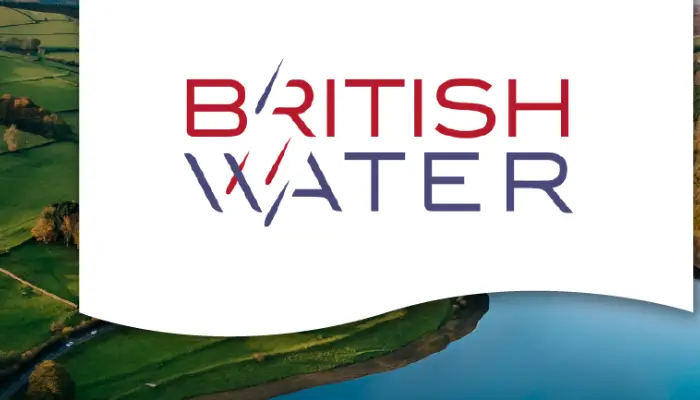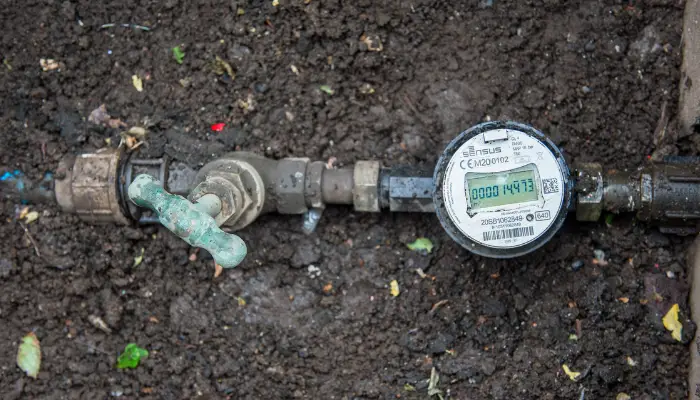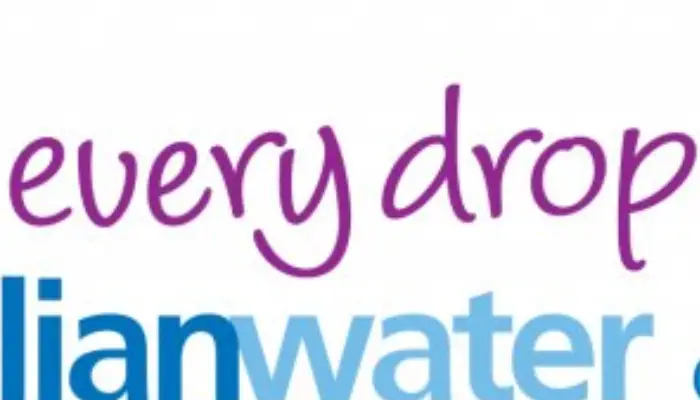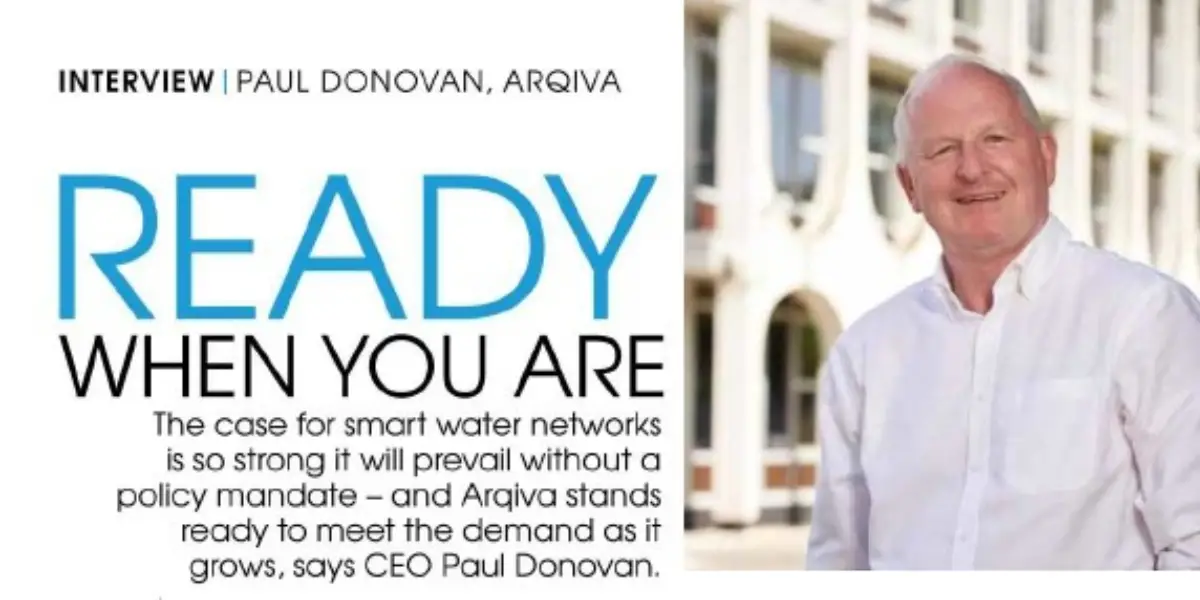The case for smart water networks is so strong it will prevail without a policy mandate – and Arqiva stands ready to meet the demand as it grows, says CEO Paul Donovan
This article first appeared in The Water Report in February 2022
Ready when you are
You might expect the man who heads up the company which owns the infrastructure through which smart meter data is transmitted to bang the drum for smart metering to be mandated in water, as it is in energy. But no, says Paul Donovan, chief executive of Arqiva. It’s not his place to intervene directly on policy, particularly as the business and environmental case speaks for itself With the right focus during PR24 we are, he believes, on a trajectory to a smart water future anyway.
Arqiva builds and operates a network of complex ecosystems through which data and content move. This includes entertainment and information for broadcasting and transmission services and data for utilities. It supplies 17m homes with Freeview; broadcasts 1bn hours of radio a week; and delivers around 50m data points every day for energy and water companies. “I describe myself as the CEO of the most important company you’ve never heard of,” he jokes.
Donovan took the reins in April 2020, a few weeks into the first lockdown. Fortunately, he says, he had been a non executive director on the board for some time, so was no stranger to the company. He also came with 20 years experience in senior roles across the technology, media and telecommunications sectors, including as CEO of Odeon and UCI Cinemas Group and as head of Vodafone’s emerging markets businesses.
His almost two years in post has been busy, initially grappling with Covid impacts and completing the sale of Arqiva’s mobile phone towers business, and subsequently planning the company’s strategy for the next decade. This involves focusing more acutely on its two remaining business segments: media distribution, a largely mature market accounting for 80% of revenues with relatively slow growth; and smart utilities networks, an immature market accounting for 20% of revenues but with high growth.
What we see is a lot of opportunity for more growth in meter penetration. Clearly there’s a business case for it, a social equity case for it, and an environmental case for it
Multi-benefit metering
The utilities in question are energy and water, and Arqiva provides four key services: meter data (including as partners to the DCC on the energy smart meter rollout, and on behalf of Thames Water, Anglian Water and others who have taken the plunge on smart meter rollouts); data analytics; managed connectivity; and a managed service for sensors.
Donovan expects some growth in the utilities segment to come from companies migrating to its spectrum and satellite networks, as the traditional BT copper network is phased out by 2025. But significantly: “What we see is a lot of opportunity for more growth in meter penetration. Clearly there’s a business case for it, a social equity case for it, and an environmental case for it – and then also helping people to run their networks in a more efficient way.”
While smart penetration in energy is spearheaded by the mandatory roll out, Donovan says there are plenty of drivers in water too. These include:
• Resource efficiency – “At the macro level, society is waking up a little late perhaps to the carbon impact of water but also to the fact that water is a scarce resource. With population growth, the difficulty of transporting it around the country and climate change, we need to think differently about how we acquire and distribute, charge for and process water.”
• Affordability – “Most providers have some sort of social tariff but actually they are quite blunt instruments. If all homes had water meters, you would have the potential for there to be a nationwide and very just set of charges for those people who are most economically disadvantaged.” He explains there would the opportunity for tariff flexibility and to tailor offerings to individual households’ needs.
• Network optimisation – “For example in the identification and reduction of leakage…If you put together all the data from a much more dense application of smart meters, we’ve demonstrated you can identify and awful lot more leakage – customer side and network side.” There is appetite, he says, for ‘leakage as a service’.
Donovan reflects: “The evidence is pretty clear that when you install the meter, the usage actually drops – lower bills, and lower operating costs that can result in lower bills. So smart metering can be a catalyst for a virtuous circle of operator and customer benefits that’s relatively transparent.”
Sensors as a service
With wastewater very much in the spotlight now, Donovan goes on to highlight the advantages of smart wastewater networks. “In many instances, the waste infrastructure of water companies in the UK is based on a design from Victorian times and is unable today to cope with the surges from rainfall sometimes resulting in massive overflow…The opportunity to place sensors throughout the network, with data coming back to network operating centres, should enable the waste networks to be run in a much calmer way.”
He appreciates cost will be a sticking point, but pledges: “One of the things we are keen to work on with the water industry is lower cost sensors. It’s the actual cost of the sensors which is the barrier to widespread adoption. These things will come; where there is demand, technology companies will always find a way to meet those needs.”
He adds: “If you are already working with Arqiva on your smart meter installation and we have already built our network over your footprint, then the opportunity to add other applications is both quick and cost effective.”
The UK consumer has a brilliant track record of adopting new technologies – Netflix, Amazon firestick, smartphones…
Myth-busting research
There is also the argument that the benefits water companies would get from smart networks will be far in excess of the costs of commissioning them. This point emerged starkly from research which Arqiva commissioned from Artesia and Frontier Economics on smart water metering, and which was published late last year. It found a coordinated roll-out of water smart metering across England and Wales in 2025 to 2030 would yield net benefits of close to £1.9bn, or £1.73 of benefit for every £1 of cost incurred.
There was net benefit in every water company region, not just those defined as water stressed. There was also a positive investment case for companies in terms of controlling leakage and the network and avoiding costs, even when societal benefits like carbon reduction were stripped out. The report found this would yield a net cost saving of £726m which could result in lower average bills for households.
This research was paired with another Arqiva commission, for Waterwise to delve into customer attitudes on water smart metering.
Donovan reflects: “The research is quite helpful at debunking some myths. One is: yes this is all fine but the business case only works for a certain number of water companies. We demonstrated that all water companies in England and Wales would benefit from adopting the strategy.
“And another myth is that customers don’t want it, don’t trust it and aren’t willing to accept it. The Waterwise work has shown that’s not the case…that showed how open people are now to the concept of water meters and how, with a bit of nudging from the industry, historic resistance to the installation of meters can be very easily overcome.” He points out too: “The UK consumer has a brilliant track record of adopting new technologies – Netflix, Amazon firestick, smartphones…”
He continues: “Just pointing those two things out does what we have sought to do, which not to tell anybody what they should do, but to lay bare the facts and so that all stakeholders can have a more informed discussion. As an enabler of the eco system, that’s our role.”
PR24: practicality will prevail
Arqiva expects the findings of its research to be taken into account as companies and regulators work on PR24. Donovan says the timing is vital. “For me, what will be most important is that for the next five-year regulatory period, there is sufficient ambition around the digitisation of their networks at a network level and end user level to be transformative by 2030. Because if you miss an opportunity for an AMP, you have to wait five years before you can do it again – it’s quite an unusual construct and as a company or a regulator, you can miss the boat.”
He is optimistic about prospects for PR24. “Over the past 24 months or so – and we’ve seen this with the engagement we’ve had with politicians and other stakeholders – there is recognition that there is a prize here that can be a win-win for companies, the environment and for customers; that it is actually an opportunity that needs to be grasped…The historical resistance to the disruption and potential cost of smart metering has actually gone away so there is a window of opportunity for the industry.”
Donovan believes the business case for smart metering is so strong that it will prevail despite ambivalent policy, notably Defra’s recent decision not to mandate metering of any sort. “The economic argument is the most important one and if people really look hard at the business case, then it is for them to come forward and present that.”
He points out quite a lot of water companies wanted to invest in smart metering when Green Recovery money was on the table. “So I think that is a useful lead indicator that actually in the AMP period we are likely to see companies wanting to accelerate that because they understand the importance of engaging with their customers and understanding their networks. If you can avoid capex and opex through investment, then that makes business sense.”
And given new emerging findings from regional water resource plans which look to demand reduction to plug around half of the 4 billion litres of water a day by 2050 deficit identified (see p4), the business case is growing all the time.
“All roads lead to an acceleration rather than the mandating of smart metering,” Donovan observes. For Arqiva’s part, he states: “We are there, able to service that demand as it emerges.” The company has invested £100m in core IT technology over the past four years. Switching proprietary systems for managing data and people, for example, to open platforms and systems in the Cloud, to boost flexibility and enable innovation. The project is nearing completion and has established two platforms: one to serve broadcasting needs and other for utilities.
Donovan wraps up: “The investments we have made – particular core technology platforms – means that actually we are ready to scale those operations and we can do that in a way that is in line with what we see as being the growing demand over the coming years to the end of the decade.”
News

Arqiva joins British Water

Arqiva and Clancy form new partnership to deliver end-to-end smart water metering programmes

Arqiva awarded extension of smart water meter network with Anglian Water
